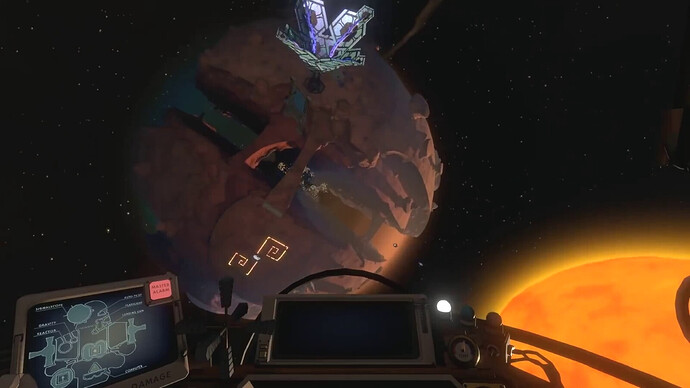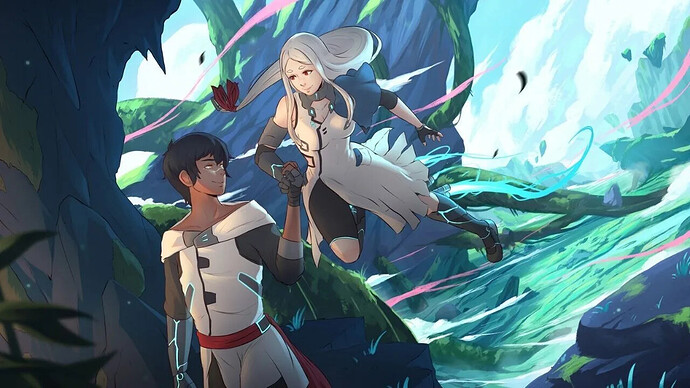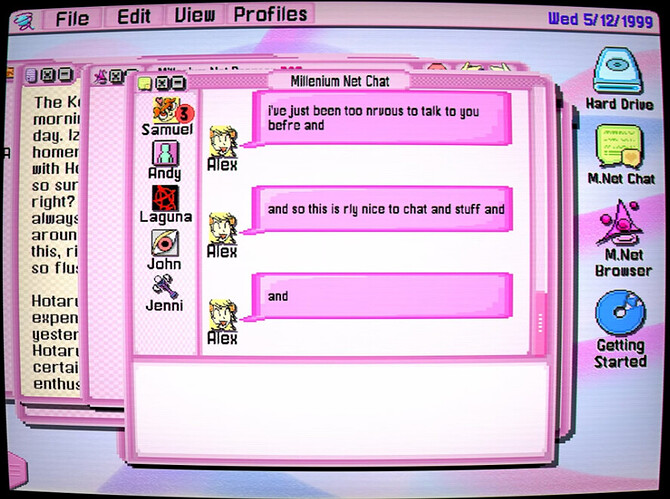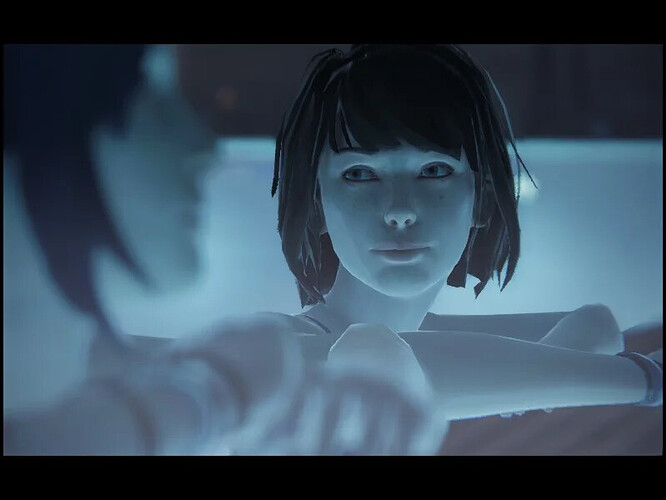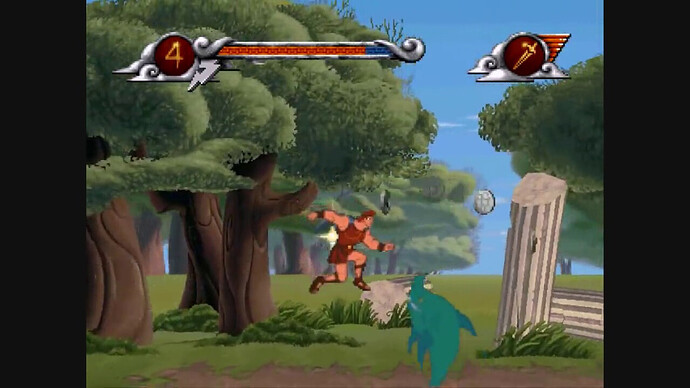I’m not much into making year-end retrospectives. Filtering games by their release year always felt rather arbitrary. But, as I teased previously, this year has been quite outstanding in the quality of games I’ve played. So here’s my retrospective of selected games.
No category
These are not necessarily the three best games I played this year, but I’m not sure where they fit into the broader themes of this retrospective so they are lumped together here at the beginning.
Hades
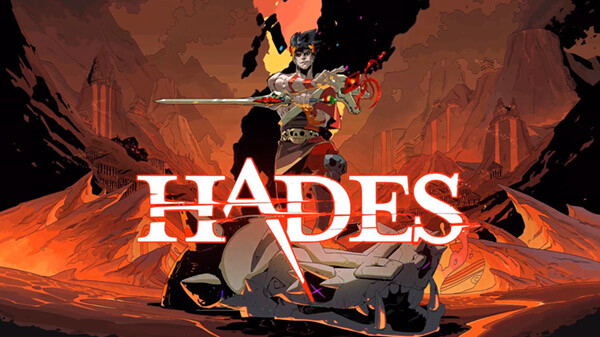
Having been won over by the gorgeous Transitor and Pyre (and Bastion to a lesser extent) I was a bit disappointed that Supergiant’s next game was going to be a roguelike – a genre I’ve never enjoyed in the least. However, I decided that those master craftspeople had won enough of my trust to blindly play whatever they created next irregardless. And, boy, did they delivered.
Not much can be said that hasn’t been said already a thousand times. Hades is simply amazing. The tight gameplay is a distillation of years of iteration from their previous games plus years of balance in early access. Art-style and music are as perfect as we’ve come to expect, and the writing was witty, fun and touching.
Outer Wilds
Just as I’m writing these lines I realised that the better of the recently-released games starting with “Outer W” was, indeed, another roguelike. It’s outrageous not only that I was mislead into playing two roguelikes this year, but that they both were one of the most satisfying experiences in my recent gaming history.
Outer Wilds is delightful. It shows that you don’t need an infinitely big map or universe to evoke a profound longing for discovery and exploration. I plunged into it’s odd universe completely blind, knowing next to nothing about the details. If you’re reading this and are just a bit curious, don’t read anything about the game and just play it. You’ll be rewarded immensely.
Haven
Many years ago I listened to a podcast that talked about how in a couple, important information is distributed between both brains. If one of them knows, say, where they store the detergent, then the other can, instead, memorise where they leave the cooking oil. And when one person die or leaves, the other not only losses a life partner, but, almost literally, part of their cognitive abilities.
Playing Haven with my girlfriend, each of us had different information regarding which attacks where effective with each creature, which ingredient was the best to create healing items, or where important places were on the map.
Haven goes all in into the theme of what makes a couple work. The story lovingly and realistically portraits the interactions between long-term partners. Inside jokes, fights, and that special kind of flirting reserved only for two people who know each-other deeply. But the gameplay is also entrenched in couple-hood. Fights require coordinated strategies of impeccably timed combination of attacks. If played solo, those are not challenging at all, since they don’t involve more than the usual hand-eye coordination of any game. But playing co-op, you need to quickly agree on what to do.
Looking back, I realise how my girlfriend and I improved our communication during fights. If I shouted “shield!”, was that an order to her or was I anticipating my actions? We lost some battles due to both of us using shielding at the same time. But after a while, we developed our own special language of combat and in the end we were functioning like a well-oiled machine. It mirrors how a couple that lives together needs to learn in order to have an harmonious life.
My girlfriend and I finished Haven on the 30th of December so there might be a bit of recency bias, but still. It was a purely joyous experience in many ways. Not only the game it’s very enjoyable in its own right, but it was our first foray into co-op gaming. And we couldn’t have picked a better game to start with.
Retro games
I would never consider myself a retro gamer. Old games carry almost no nostalgia for me and they usually lack quality of life elements that we as modern gamers take for granted. However, this year I’ve played several games from days of yore.
SkyRoads
I have absolutely no idea why, but some time this year I started to reminisce about a an old game I used to play as a child in which you controlled some sort of spaceship running through a corridor with obstacles. With no recollection of what is was called (or how I managed to get it as a child), I google-imaged some variant of “video game space run obstacles old” and reached this game.
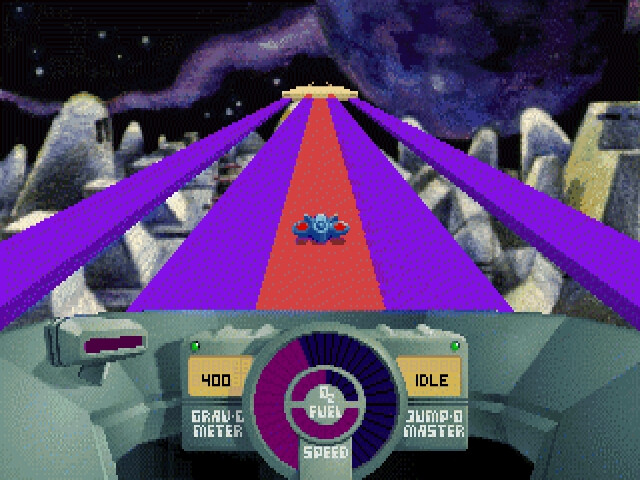
Ok, I might’ve lied a bit with the bit about nostalgia. SkyRoads takes me back to my childhood in a weird way. The fantastic music, minimal gameplay and punishing difficulty are a staple of the early era of PC gaming (at least early for me). I can remember playing it obsessively trying to finally beat it.
But SkyRoads is not only a look into the past, but also into the future. Re-discovering this classic of my childhood lead me to the realisation that I enjoyed this kind of “endless runner” genre. This lead me to other SkyRoad-likes such as Sayonara Wild Hearts, Thumper and the still unreleased Nerve.
The Operative: No One Lives Forever
When I was 11-12 years old, my dad went to live to San Juan, an arid province in North-western Argentina 14 hours from Buenos Aires. He worked in the CASLEO, an observatory near the Andes. During that time, I visited him every summer and each year a friend of the family, which was like a third dad to me (yeah, I’ve been fortunate to have had several father figures :)), always bought me a “PC Juegos” (PC Games) magazine, which came with a CD filled with demos.
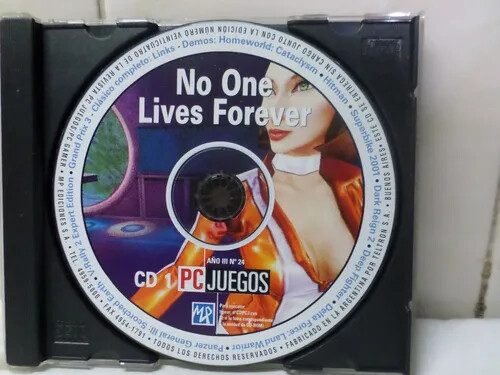
One of the demos I played while my dad went to the observatory was No One Lives Forever. I’m hazy on the details, but it clicked with me so much that I played the few levels multiple times.
So, similarly to SkyRoads, this year something made those memories bubble up from the depths of my memory and decided to track down this 20-year-old FPS and give it a go. It was a revelation.
For such an older game, the gameplay is surprisingly solid, save some dated and annoying design choices. But for me the main show here is the setting and the characters. Who would’ve thought that one of the best female (or male) protagonists in all of gaming was also one of the firsts? Cate Archer is smart, witty, and unbelievable capable; and although she’s constantly being looked down upon by the men around her, she still relentlessly proves her worth stoically.
One particularly abrasive character complains that “the point of women’s liberation to allow young ladies to become men” and Archer’s retort is simply perfect: “The point is to allow young ladies to become whatever they please.” Had I played the complete game instead of the demo, I cannot even imagine how 12 year-old me would’ve reacted to such a line. 31 year-old me was beyond ecstatic.
Snatcher
Having been released only a couple of months after my birth, Snatcher is much older than No One Lives Forever or SkyRoads, but weirdly it seemed to have aged less.
Being more or less a point-and-click adventure (with no pointing and clicking, just menus), the gameplay remains solid and enjoyable to this day. It’s hard for me to pinpoint exactly what I loved about Snatcher. The moment-to-moment conversations between the main characters are charming enough to brush aside the game’s problematic gender issues and transphobic humour (seriously, Kojima, WTF?). The graphics are lovingly drawn and coloured, even the gruesome scenes in which you find a character lying on the ground with his severed head between his legs.
LGBTQ+
While I’ve always appreciated games that touched queer subjects or had queer characters, this was also the year in which I went all in in specifically seeking out games about LGBTQ+ narratives.
Secret Little Haven
This little game, brought to me by the massive Itch.io bundle, is the one that started the ball rolling. It tells the story of discovery of Alex, who starts as a boy obsessed with a fictional magical girls cartoon. Told through chats and forum posts, it’s a sweet story about friendship and acceptance which is not without its dark moments.
The game hooked me not only due to its themes, but also the presentation. It presents a beautifully rendered mock late 90s Mac which left me craving for the old, glorious, untamed internet in which I would have anonymous long-form discussions in random forums about philosophy and religion, or chat with whomever in weird IRC channels. Living my formative tweens and teens through that wild-west internet was a profound experience that I didn’t realise I was missing until now.
Strangely, I do feel that the Grouvee community fills a bit of that void, which is probably one of the reasons why I like it so much here.
Spring trilogy
This is not the official name, but I needed to come up with some name for three short visual novels I played on Android: One Night, Hot Springs, Last Day of Spring and Spring Leaves no Flowers. These short games are more like small tableaus of the life of Haru, a trans girl living in Japan. They are not spectacular or anything, but they tell nice little stories about the importance of friends in navigating the hardships of a hostile world.
The Missing: J.J. Macfield and the Island of Memories
One month ago I wrote that this game gave me so much to think about, and I have to say that I’m still mulling it over. It’s a powerful representation of the pain that can be cause by others, but also that comes from within. Again I will defer to @prin’s review since they put it into words better than I could, but the upshot is that The Missing is a game that should be experience by everyone.
If Found…
Another late entry into the great and meaningful experiences of 2020. If Found not only tells a heartbreaking story, but it’s also absolutely gorgeous. As you erase images and entries from a diary, every frame is more stunning than the last. One of them is currently my screen wallpaper.

What stood out to me is the image of the mother of the main character, Kasio, a trans who returns to her home village on a small Irish isle. In the game, she is shown to be as much a victim as Kasio of our heteronormative society. She obviously loves her daughter and clearly wants her to be happy, but she cannot support her without taking a hit socially. The “what would other people think?” directed at Kadi will also reflect on her. In a tight-knitted community, loosing that kind of social standing is a great sacrifice.
I still don’t know what to make of that reflection, though. But making you think is the mark of good art, isn’t it?
Life is Strange
I had quite a ride with this one. After the first episodes I took an immediate dislike to Chloe who acted like a stupid, self-absorbed ass-hole. But after a while, I couldn’t not love her. By Episode 3, I was completely captivated by their chemistry and loved every cute moment between them. (That night at the pool is definitely the high point of the entire game.)
“The moment when she stopped thinking straight…” - some redittor
Episode 4 made me stop playing to go cry in my bed. The game forced me to make such a big decision that I fell apart emotionally. I’d got anxious at the mere though of double-clicking that icon on the desktop so I eventually decided to give it some time. That time turned out to be 4 full months but after the emotions had settled down a bit I was able to continue. The rest of the game was a bit of a disappointment; particularly the last episode, which felt rushed, truncated.
However, I cannot deny the impact of the game, so it gains a place on this retrospective fair and square.
Soundtrack intermission
This year I added several great videogame soundtracks to my library.
SkyRoads
Crunchy genuinely retro music
Nirvana Pilot Yume
Excellent synthwave
Haven
Another synthwavey album I cannot stop listening to.
The Songs of Supergiant games
Sublime re-composition of Supergiant’s greatest hits
(Semi) Annual Mass Effect playthrough 
As it has become the norm from some time, I played the complete Mass Effect trilogy (one, two and three) yet again. This was my first time as Femshep, which locked me out of Tali’s romance (buuuuu!! ![]() ) but let me experience Jennifer Hale’s voice acting (yaaay!!!
) but let me experience Jennifer Hale’s voice acting (yaaay!!! ![]() ). While I don’t agree with 90% of the internet that her performance if objectively superior to Maleshep’s, she does bring a different tone to the character. It’s much more bad-ass when she needs to, but also shows much more emotion. You can hear her voice cracking in some scenes.
). While I don’t agree with 90% of the internet that her performance if objectively superior to Maleshep’s, she does bring a different tone to the character. It’s much more bad-ass when she needs to, but also shows much more emotion. You can hear her voice cracking in some scenes.
In this playthrough I also paid more attention at how Mass Effect changed through the series. For example, how the Reapers went from Lovecraftian unknowable horrors to banally created AIs with the dumbest of reasons. Or how the tone went from dark and humourless to almost lively.
I’ll check in next year to see if anything changes.
Disappointments
This year I played some great games, but there were also some clunkers.
Disney’s Hercules: Action Game
Embolden by my success in revisiting games of my youth, I decided to play Hercules. What a mess. The horrible music, clunky controls and lack of save system makes this game nigh unplayable. If you have fond memories of Hercules… let them be.
No One Lives Forever 2: A Spy in H.A.R.M.'s Way
While it’s impressive how the sequel improved upon the original graphically and gameplay-wise, it’s also appalling how bland and charmless it became. What Cate Archer gained in polygon-count, she lost in personality, uniqueness, and lines of dialogue. Seriously, you could easily replace her with a generic cypher and the story and dialogue would feel exactly the same.
Tell Me Why
After the wild ride that was Life is Strange, I was pumped for DONTNOD latest game which promised to delve directly into trans issues. Unfortunately, Tell Me Why is mindbogglingly boring. I could’ve forgiven the minimal gameplay if the story and characters were interesting, but every single person you meet feels as if on life support. Every line is delivered with the same dull emotion. Plot points era painfully slow to develop.
One would expect that a story of a trans man who returns to his small Alaskan town after being years in a residential centre after killing his mother would spark some pathos. Either townsfolk that are not accepting of the character’s gender identity, or that are still angry by the murder. But no; And as pointed by @IsabelaLeticia’s review, “all the problems feel irrelevant”. There’s hardly any conflict.
Hades OST
What? What could possibly been disappointing about this wonderful perfect game? Is this heresy I say!
No, hear me out. Hades is awesome and the music, although t takes a bit of a back seat among all the action, certainly works great. Ashley Barrett as singing Eurydice was enchanting and stopped me on my tracks each time I visited her on Asphodel.
However… I have to say that the actual Soundtrack, as in the actual album arrangement… is kind of weak. The songs are too long and, too similar to each other, with too little variance in tone and intensity. There are some songs that I literally cannot distinguish, even when played back to back. Thanatos song directly lifts the main theme from Pyre’s Forbidden Knowledge.
In the pantheon of Supergiant’s music, Hades’ – even if admittedly very good – is the weakest of the bunch.
